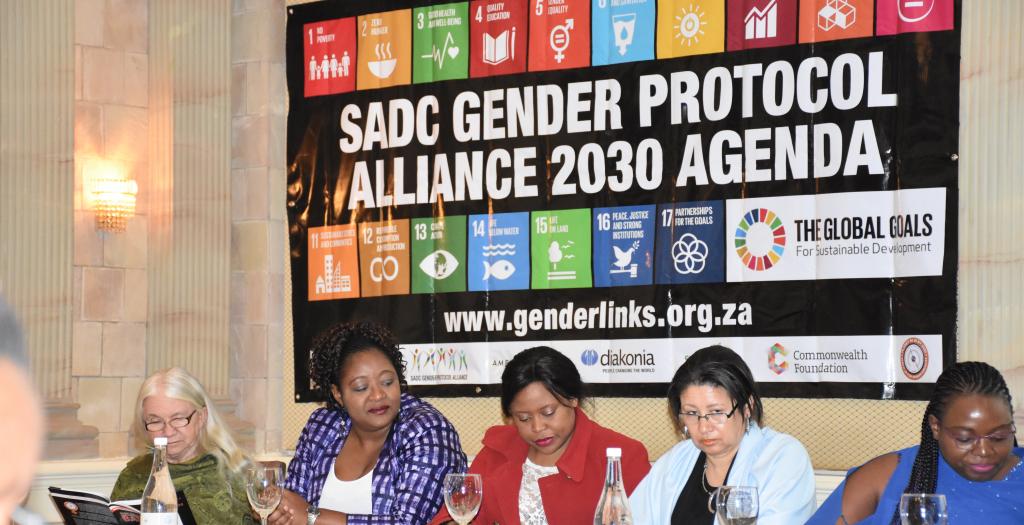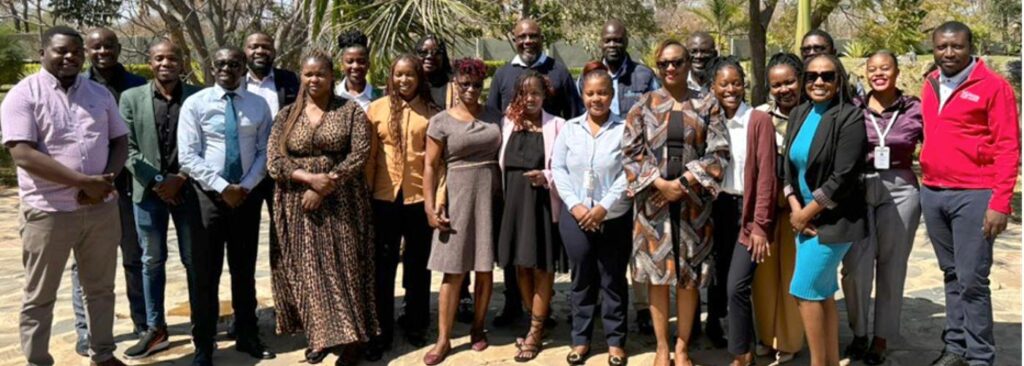Gender links launches 9th edition regional barometer
Gender Links, Hivos’ partner under the Women Empowered for Leadership (WE4L), launched the 9th edition of the SADC Gender Protocol Barometer as part of the SADC Gender Protocol Alliance. The colorful launch at the Sheraton Hotel was a side event of the 37th SADC Summit hosted by South Africa in its capital Pretoria. Representatives from 15 SADC member countries of the alliance and development partners attended the launch of the 2017 Barometer. The SADC Gender protocol alliance is a coalition of gender networks in the fifteen SADC countries that campaigned for the adoption, ratification and revision of SADC Protocol on Gender and Development The Protocol is a unique sub-regional instrument that brings together the Sustainable Development Goals (SDGs), Africa Union (AU) Agenda 2063 and Beijing plus 20 and enhance these through specific targets.
History of the Barometer
Since 2009 the Alliance has been producing the Barometer, which is a compilation of 15 country publications that track progress in achieving the targets of the SADC Gender Protocol and the Southern Africa Gender and Development Index (SGDI) introduced in 2011 based on empirical data for 23 indicators. The Barometer also has a regional publication on the same. Titled “5050 by 2030: Stepping up for gender equality “ the report brings together progress and implementation gaps in the eleven key areas of the revised Protocol and makes a strong call for radical action to transform economies, institutions and society to make gender equality in the region a reality by 2030. The report is came out at a time when the Alliance national and thematic clusters were gathered in Johannesburg to strategise on a regional roadmap to achieve gender equality through the implementation of Agenda 2030.The meeting took place on the sidelines of the annual SADC Civil Society Forum.
While the Barometer has tracked gender equality progress based on the Protocol since 2009, the latest report is the first gender audit in the region since the adoption of the revised Protocol and its accompanying monitoring, evaluation and reporting framework.
Highlights from the New Edition
This edition is the first post 2015 SADC Gender protocol assessment. The Barometer has its own unique measures of voice, choice and control and also introduces the Gender Responsive Assessment of Constitutions and Laws conducted by Alliance experts and networks around the region.
Countries under the WE4L programme in Southern Africa; Malawi, Zambia and Zimbabwe, came in 11th , 7th and 3rd respectively in the 2017 SDGI rankings.
During the launch Gender Links introduced the new Young Women’s Alliance an effort to get young women to participate more in gender advocacy and stand at the forefront for issues affecting the youth especially young women. The Irish Ambassador Liam MacGabhann who was present at the launch commended Gender Links for giving young women a platform to engage and advocate for gender equality.
Hivos Partnership with Gender Links
In line with the regional Barometer WE4L plans to take up visualisation of the data shared in the barometer. This will make the information more accessable and understandable. The data visualisation project will help increase work done by WE4L partners in achieveing 50/50 gender equality by the year 2020.







